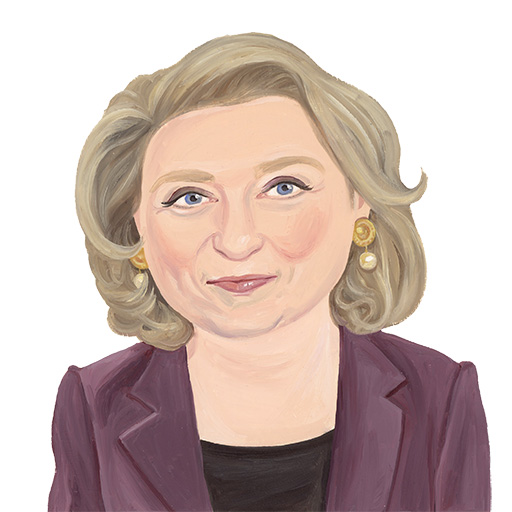I’ve never believed that George Soros was an agent of Jewish barber lizard aliens commanded by Klaus Schwab out of a secret underground Swiss bunker carved from aged Emmental.
Brilliant financier, arbitrageur, contrarian risk-taker, yes. Anti-Communist liberal activist Karl-Popperised to the point of wanting to spread the Open Society gospel across his native Central Europe, yes. Clever Hungarian (which is a pleonasm anyway), yes. Evil genius? Nah.
The man has opinions and pushes them. So do the Koch brothers and the Mercers on the Right; so did, from the reasonable centre, elegant personalities like Archduke Otto von Habsburg, Prince Karl Schwarzenberg or Richard Nikolaus Count Coudenhove-Kalergi, whose historic titles had almost the same effect on many people as the Soros, Koch or Mercer billions.
As it happens, I witnessed that effect firsthand when I was sent by The European newspaper to interview George Soros. This was back in 1992, just after his “run on the pound”, when every tabloid called him “the man who broke the Bank of England”.
Soros had shorted sterling during the currency crisis in the aftermath of the Maastricht Treaty, scenting that Britain would not be able to maintain currency parity with the Deutschmark within the forerunner of the Euro, the ERM. (However technical this may sound, the fact that Soros, then a quasi-unknown 61-year-old New York financier whose Quantum Fund had only made headlines on the financial pages, had earned one billion pounds from his informed guess catapulted the story onto the front pages of all the tabloids.)
I found him, as instructed, at the Queen Elizabeth II Conference Centre, opposite the House of Commons, holding court on one of the mock-Le Corbusier leather sofas in the public sitting areas.
Around him was a staggering array of perhaps a half dozen British gentlemen (yes, all men). Two MPs. The Chancellor of one of the toniest Oxford colleges. A quiet aristocrat bearing a grand title, in suitably threadbare Savile Row tweed, who I think worked for a small merchant bank. The former provost of an equally historic public school, now on the board of a prestigious museum. I forget what the last one did. Something at the Red Cross, perhaps.
What struck me first and foremost was the intense, focused servility emanating from this group of concentrated old privilege, like a heavy whiff of scent from a duty-free shop counter at an airport shop. They were staring one billion pounds in the face, and could not get over it. They wanted some of it, of course for the better good of organisations they represented. It made them weak-kneed.
Whatever George Soros, an unremarkable soft-spoken man of medium height, said, was greeted with reflexive nods of approval. (I don’t think they were even aware they were moving their heads; it was like some obscure religious ritual.)
He didn’t especially seem to like it; but you could see it wasn’t the first time, and he was getting used to it. As if tired of the adulation, he soon said we had better go to his nearby office to conduct the interview proper, and we parted an hour or so later, after he’d given me his latest doorstopper of a book, The Alchemy of Finance, which I skimmed through just enough to use a couple of quotes in my article.
Over the years, as George Soros decided to dedicate over 32 billion dollars of his fortune to his ideas, and became controversial in the process, I was never able to forget this scene.
Here was someone who likely never heard the word “no” in the past three decades. No wonder, his political will never contradicted by anything so pedestrian as an election, he became all things to almost all liberals — while his seemingly bottomless stream of funding grew to be the crack cocaine of activists on the entire Left of the spectrum.
Proof of this came in an anguished opinion piece in POLITICO last week, as the 93-year-old Soros’s Open Society Foundation, now headed by Soros’s 37-year-old son Alex, announced they were largely withdrawing from Europe. “The Soros retreat couldn’t come at a worse time for the European project,” wailed one Alberto Alemanno, described as “the Jean Monnet Professor of European Union Law at HEC Paris and founder of The Good Lobby, a nonprofit committed to equalize access to power”.
[Europe] “is being challenged by nationalist and populist parties dismissive of the bloc’s underlying ‘open’ values, and that will soon find themselves free of the scrutiny that OSF-backed organisations strive to exercise.”
Alemanno reminds us that the OSF’s “massive structural presence within EU civil society — which is equivalent to approximately an eighth of the €1.5 billion distributed every year — means its withdrawal threatens the survival of numerous nonprofits, many of which act as democratic watchdogs.” He says it like it’s a good thing.
I’m sure that if POLITICO were writing the same thing of the Koch brothers we’d never hear the end of it. Having witnessed on the ground some of the OSF’s early work in post-Ceaușescu Romania, or in Russia in the Nineties, soon after my Soros interview, I saw him as a clear force for good.
As recently as 2016,”Soros’s calling out of China’s opaque market practices earned him a volley of insults from Beijing”, as Miles Yu, Director of the Hudson Institute’s China Centre correctly points out.
And a lot of remarkable scholarship has come out of his Central European University over the years.
But I still find curious that almost no-one not specifically targeted by his operations has ever questioned the unbalancing caused by his nearly unchecked political influence, just because, in the main, it served the mainstream opinions of the liberal Left.






How Macron lost Morocco, France’s best ally in Africa